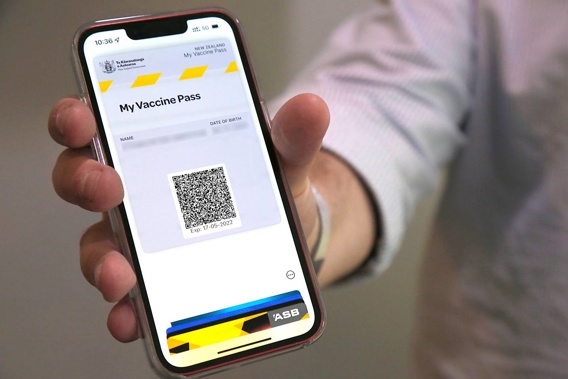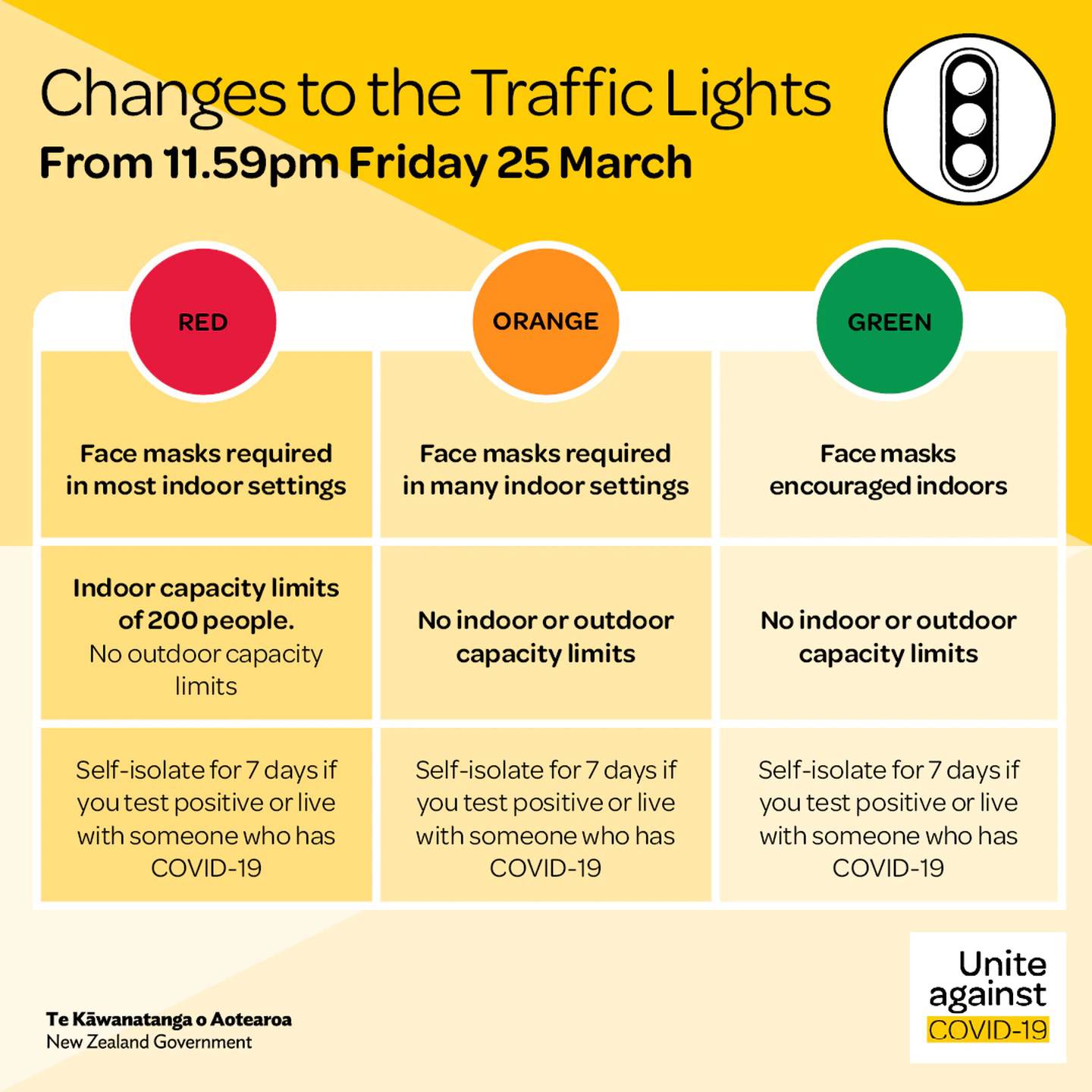
A top Covid-19 modeller has backed the Government's reasoning for ending the need for vaccine passes in venues like restaurants and bars – but says keeping mask rules in place will be "crucial" for curbing Covid-19 spread.
Prime Minister Jacinda Ardern today announced a roll-back of vaccine mandates and pass uses as New Zealand begins its climb-down from the Omicron wave.
From April 4, requirements to use vaccine passes and scan QR codes will wind up, while vaccine mandates will be removed from all sectors except for health and aged care, Corrections and border workforces.
The red setting under the traffic light system has also been tweaked – effective from midnight Friday – to lift capacity limits for bars and restaurants from 100 to 200 people, and to lift all caps on outdoor events.
Face masks, however, will still be mandatory in most indoor settings under red – and in many places under orange.
Covid-19 modeller Professor Michael Plank said while vaccine passes were an important part of safely emerging from last year's Auckland lockdown, and keeping Delta low over summer, Omicron had "changed the game".
"Vaccines are still hugely effective at preventing severe illness, but less effective at stopping people catching and spreading the virus," he said.
"At the same time, we now have increasing levels of infection-acquired immunity in the population.

Source / NZ Government
"This means that allowing unvaccinated people into places like cafes and bars doesn't substantially alter the risk of catching Covid there – there are likely to be lots of Covid-positive people there either way."
This morning, Ardern cited data that showed hospitality had a relatively low secondary attack rate of 6.7 per cent, which was backed up by other research.
"As a blanket measure, vaccine passes are therefore much less effective now at reducing transmission than they were a few months ago," said Plank, of Covid-19 Modelling Aotearoa.
But he warned New Zealand still faced a difficult road ahead.
"At least as many people will be infected on the way down the mountain as on the way up, and pressure on our healthcare system is likely to remain high," he said.
"Keeping mask rules is crucial to limit transmission."
Now that rapid antigen tests were becoming more widely available, he said adding a requirement to "test to release" after the seven-day isolation period would reduce the risk of people going back into the community while still infectious.
Meanwhile, a data scientist is disappointed the April 4 changes will mean businesses no longer have to require QR code posters or ways for people to add their records.
The University of Auckland's Dr Andrew Chen said that, while it was understandable people would no longer have to scan in, they should still have the option of doing so.
"The Prime Minister indicated that if there was a new variant or a different type of outbreak that they may call for people to scan QR codes again – leaving the infrastructure in place, including having QR codes available for scanning, is critical to supporting a fast response."
Chen said the announced end to vaccine passes made sense, given current evidence.
"It has been shown internationally that vaccine passes or equivalent certificates are effective at incentivising vaccination uptake, but do not have as much impact on reducing transmission in access-restricted venues," he said.
"While separating unvaccinated and vaccinated people in venues may make logical sense to many people, the international evidence suggests that the impact is minimal.

The University of Auckland's Dr Andrew Chen said that, while it was understandable people would no longer have to scan in, they should still have the option of doing so. Photo / Supplied
"With a very highly vaccinated population, the reason to keep using vaccine passes has faded away."
But similarly, he added, allowing businesses and organisations to keep the system if they wanted to retain it also made sense.
"It is important that those businesses and organisations, however, understand that they are making their own decision to continue using this tool, and cannot rely on government regulation as the reason for using these passes," he said.
"I am a little worried about customers or members of those organisations being angry at those that continue to use and require vaccine passes, and it is important that we all respect the choice to continue using passes.
"This does mean that people should continue to keep a copy of their vaccine pass in case they are asked for one by a particular business or organisation."
He noted the system currently set all vaccine passes to expire by June 1, and there could still be changes to how vaccine passes were defined – such as the holder being boosted.
"We expect further announcements on vaccine pass validity in the next month or so."
Even with Omicron rates starting to fall, Otago University immunologist and Pacific health expert Dr Dianne Sika-Paotonu stressed that care and caution was still needed – especially for vulnerable communities.
The Omicron wave was still peaking across different regions, and vaccinators were still in the process of boosting people and rolling out the paediatric vaccine to children – with evident inequities among Māori and Pacific people.
"Pacific peoples currently make up 18 per cent of Covid-19 cases, and nearly double, 35 per cent, of all hospitalisations," she said.
"Of all those currently eligible for a booster dose of the Covid-19 vaccine, 72.8 per cent of the general population have been given one, and for Māori and Pacific, booster levels are at 58.6 per cent and 59.5 per cent respectively."
She said the definition for being fully vaccinated ideally should now include a booster shot, while boosters for overseas travellers entering the country should also be encouraged.
Take your Radio, Podcasts and Music with you








